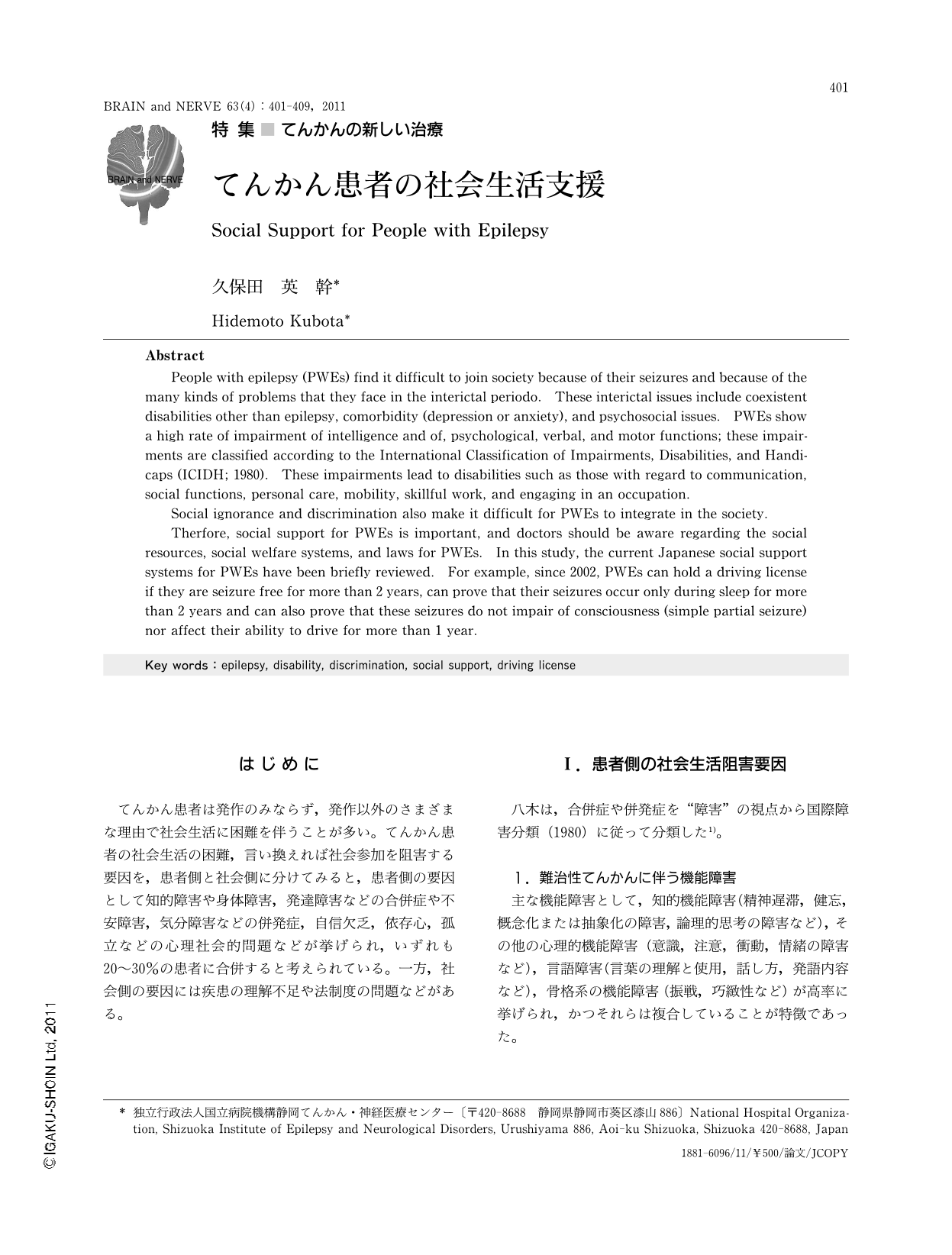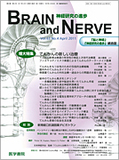Japanese
English
- 有料閲覧
- Abstract 文献概要
- 1ページ目 Look Inside
- 参考文献 Reference
はじめに
てんかん患者は発作のみならず,発作以外のさまざまな理由で社会生活に困難を伴うことが多い。てんかん患者の社会生活の困難,言い換えれば社会参加を阻害する要因を,患者側と社会側に分けてみると,患者側の要因として知的障害や身体障害,発達障害などの合併症や不安障害,気分障害などの併発症,自信欠乏,依存心,孤立などの心理社会的問題などが挙げられ,いずれも20~30%の患者に合併すると考えられている。一方,社会側の要因には疾患の理解不足や法制度の問題などがある。
Abstract
People with epilepsy (PWEs) find it difficult to join society because of their seizures and because of the many kinds of problems that they face in the interictal periodo. These interictal issues include coexistent disabilities other than epilepsy, comorbidity (depression or anxiety), and psychosocial issues. PWEs show a high rate of impairment of intelligence and of, psychological, verbal, and motor functions; these impairments are classified according to the International Classification of Impairments, Disabilities, and Handicaps (ICIDH; 1980). These impairments lead to disabilities such as those with regard to communication, social functions, personal care, mobility, skillful work, and engaging in an occupation.
Social ignorance and discrimination also make it difficult for PWEs to integrate in the society.
Therfore,social support for PWEs is important,and doctors should be aware regarding the social resources,social welfare systems,and laws for PWEs. In this study,the current Japanese social support systems for PWEs have been briefly reviewed. For example,since 2002,PWEs can hold a driving license if they are seizure free for more than 2 years,can prove that their seizures occur only during sleep for more than 2 years and can also prove that these seizures do not impair of consciousness (simple partial seizure) nor affect their ability to drive for more than 1 year.

Copyright © 2011, Igaku-Shoin Ltd. All rights reserved.


